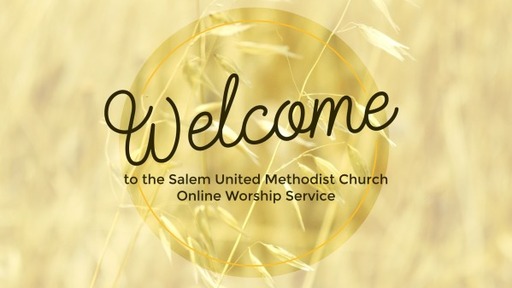The Seeds of Grace: The Revealed Words of God

Sermon • Submitted • Presented • 1:14:21
0 ratings
· 162 viewsFiles
Notes
Transcript
Jesus speaks to his disciples in parables.
Jesus speaks to his disciples in parables.
In Hebrew, a mashal is like a riddle, intended to tease the mind into insight rather than to communicate a simple idea by means of an illustration.
In Hebrew, a mashal is like a riddle, intended to tease the mind into insight rather than to communicate a simple idea by means of an illustration.
Seven Parables, four before to all the people, and
Three Parables about the kingdom of God.
Jesus speaks to the disciples privately about his persecutors. His rejection by “this generation”
2 I will open my mouth with a parable; I will utter hidden things, things from of old—
The “Son of David” will speak in parables and reveal mysteries in the world.
Jesus fulfilled this prophecy as shown in vv. 34–35.
It was regarded as important to instruct the readers immediately after the first parable that these kingdom parables are not just simple illustrations but “riddles” that both conceal and reveal.
Those who accept Jesus’ yoke and become his true family are contrasted with the many who reject him.
The parables were not allegorical but were intended to make one point only.
As allegorical interpretation it was proposed: Jesus created this parable to strengthen his followers against discouragement in the face of unresponsiveness.
In reality, the farmer scatters his seed liberally before plowing, knowing that a good many seeds will not reach maturity but confident nonetheless that there will be a good harvest.
The closing detail of the parable is by no means a reflection of a farmer’s usual experience.
A good harvest would have provided a first-century Galilean farmer with ten bushels for every bushel of seed; a normal return would have been seven and a half.
Thus, Jesus is not speaking of everyday experience but of God’s supernatural activity at the dawning of the kingdom.
Despite the meager response to Jesus’ ministry, God will provide a spectacular harvest!
The sower’s three unsuccessful areas: the wider circle of his supporters whose enthusiasm had waned or disappeared.
Jesus makes it plain that the seed refers unambiguously to “the word of the kingdom” which is sown in human hearts;
This isn’t about the soil of different kings of people.
“that which is sown” refers to different kinds of people, and the various soils now signify the trying situations in which these people find themselves and which prevent them from becoming fruitful.
But, it suggests that those who are sown in the good soil are simply lucky; they produce fruit because they have not had to struggle with the temptations of this world or face tribulation and persecution.
The parables are simply illustrations of the frustrations a farmer must face.
The parable as it stands here seems to describe the reception of the word, or good news, or teaching (v. 19) about the secrets of the kingdom (v. 11) as taught by Christ.
those who receive the Gospel and understand it, appropriate it, not merely intellectually, but with a commitment at the depths of their being.
Only then, they will be able to withstand the onslaught of temptation and tribulation and produce a bountiful harvest in terms of the good fruits of obedience to God’s will.
To “understand” implies acknowledgment of God’s sovereignty, the fear of God.
34 Give me understanding, so that I may keep your law and obey it with all my heart.
This “understanding” refers not to intellectual awareness but to a moral commitment involving one’s inmost self.
Some do not understand it (v. 19).
Some cannot endure the persecution with which its disciples are assailed (vv. 20–21).
Some are too much preoccupied by worldly pursuits to allow it to influence them (v. 22).
Evangelism must be pursued enthusiastically in spite of what appear to be meager results. Our responsibility is to sow the seed.
Sometimes we don’t understand what we are hearing.
There is a difference between simply “hearing” the word and “understanding” it.
Today, Christians are not threatened by persecution but by secular scorn. Scorn born out by questioning with skepticism, and we ask many questions.
“You don’t really believe that, do you?”
“Why do you tell people what to do?”
“Why are you being so judgmental?”
“Why do you forgive them, they don’t deserve it?”
The cares of the world and the deceitfulness of possessions choke out the word of the world.
Jesus does not leave us to understand the kingdom of God on our own.
For Matthew the people who hear the word and understand it (v. 23) are those “to whom it has been given” (v. 11). By grace, not by human understanding, are they able to incorporate the word into their very being.
“but now the word was given to you to understand” “in their heart”
We must pray for the gift of understanding, so that what they believe with their minds may be acted out in their daily behavior.
Scripture here refers to a knowing of the heart, encompassing all of one’s being.
This is a faith and trust born of experiencing the grace of God giving us understanding of what the Kingdom of God is.
The parable originally spoke of the great harvest that God would be produced despite temporary setbacks.
Those who welcome the seed of the word become true disciples of the kingdom (v. 28).
Our responsibility is to sow the seed; only God can give the increase (cf. 1 Cor. 3:6).
The only way to fail is not spreading the seed.
God reveals his word to you, that you might share it.